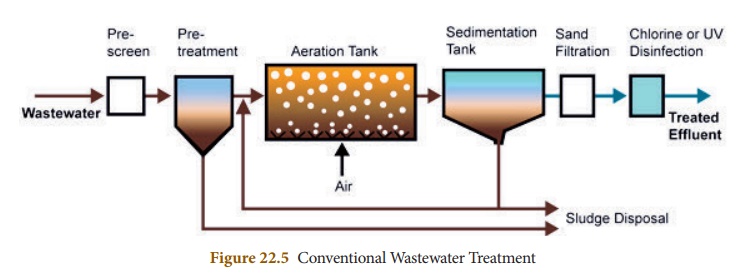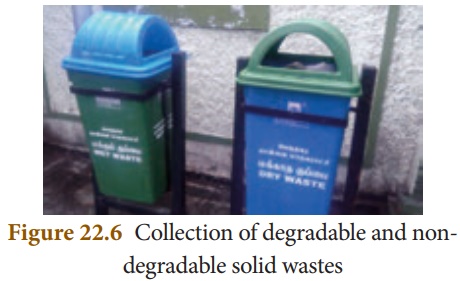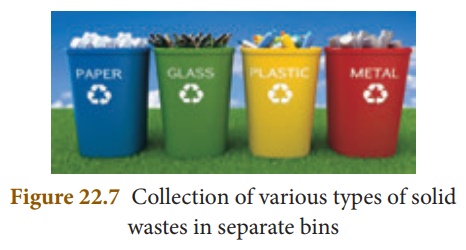Chapter: 10th Science : Chapter 22 : Environmental Management
Solid Waste Management
Solid
Waste Management
Solid wastes mainly include
municipal wastes, hospital wastes, industrial wastes and e-wastes etc. The
solid wastes are dumped in the soil which results in landscape pollution.

Solid- waste management
involves the collection, treatment and proper disposing of solid material that
is discarded from the household and industrial activities.
Methods of solid wastes disposal
(i) Segregation: It is the separation of different type
of waste materials like biodegradable and non biodegradable wastes.
(ii) Sanitary landfill: Solid wastes are
dumped into low lying areas. The layers are compacted by trucks to allow
settlement. The waste materials get stabilised in about 2-12 months. The
organic matter undergoes decomposition.

(iii) Incineration: It is the burning of non biodegradable
solid wastes (medical wastes) in properly constructed furnace at high
temperature.
(iv) Composting: Biodegradable matter
of solid wastes is digested by microbial action or earthworms and
converted into humus.

Recycling of wastes
Papers from old books,
magazines and newspapers are recycled to produce papers in papermills.
Agricultural wastes like coconut shells, jute cotton stalk,
bagasse of sugarcane can be used to make paper and hard board. Paddy husk can be
used as livestock fodder.
Cowdung and other organic wastes can be used in gobar gas plant to
provide biogas and manure for fields.
3R Approach
The 3R approach such as
Reduce, Reuse and Recycle may be followed for effective waste management.
Related Topics